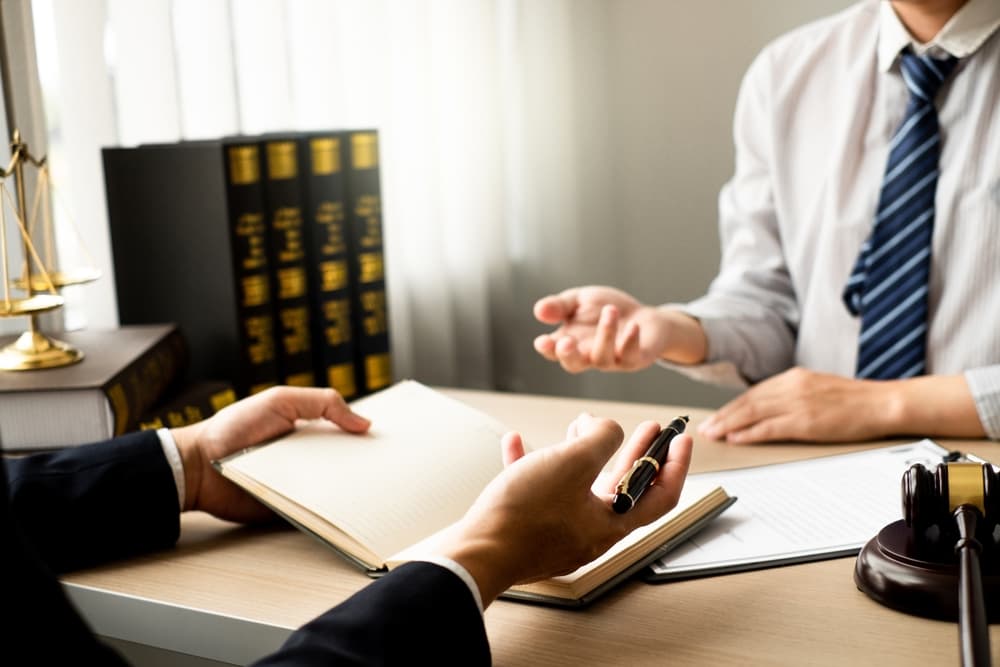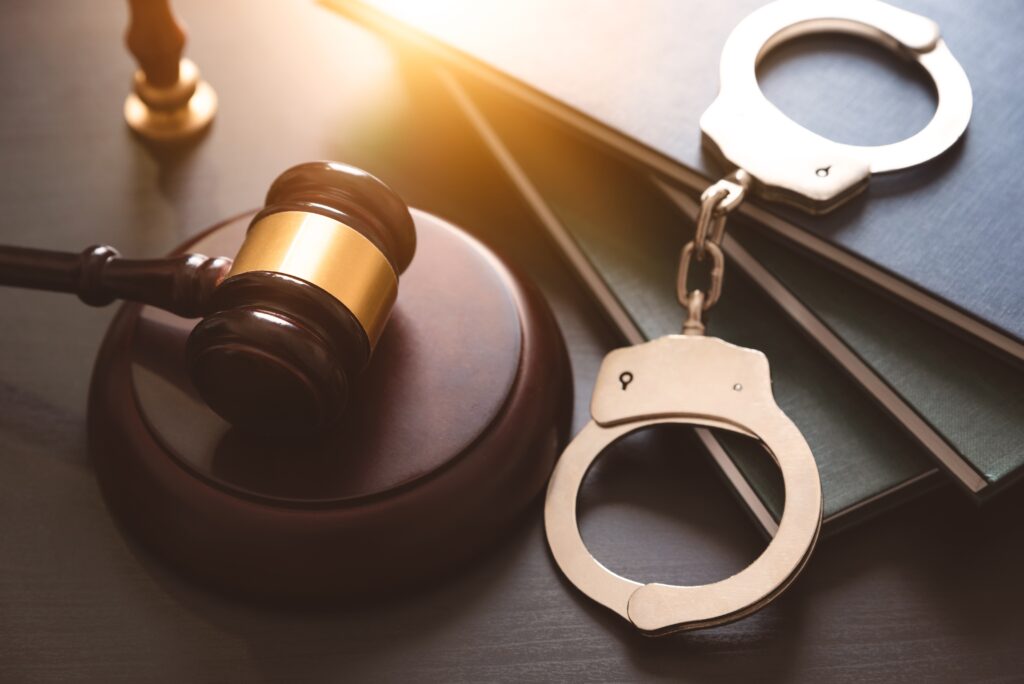The pretrial phase of a criminal defense case is the most critical part of the criminal defense process. It’s when evidence is gathered, strategies are developed, and negotiations happen. Knowing what to expect can help you get through everything with more confidence.
The best thing you can do following an arrest to get you through the pretrial process is to hire a Beaufort criminal defense lawyer immediately.
Schedule Your Free Consultation
Pretrial Process

The pretrial phase is the period between charges being filed and the trial starting. It’s a busy time of legal activity and includes investigations, discovery, negotiations, and hearings. The goal during this phase is to prepare a solid defense and explore all options, which may include dismissal of charges, a plea deal, or proceeding to trial.
Post-Arrest Initial Steps
After an arrest, several key steps happen to start the pretrial phase:
- Booking: This is the administrative process through which the arrest is logged. Personal information, fingerprints, and a photo are taken, and charges are documented and recorded.
- First Appearance: The accused appears before a judge. The judge tells the accused of the charges, advises them of their rights, and sets bail or determines the conditions of release.
- Bail Hearing: If bail is set, a hearing may be held to determine the amount and conditions. This step ensures the accused appears in court and can remain free until trial.
Investigation and Evidence Gathering
After the initial steps, both the prosecution and defense start their investigations. This means gathering evidence, interviewing witnesses, and reviewing police reports.
- Prosecution’s Investigation: The prosecution builds a case against the accused, gathering evidence to support the charges.
- Defense’s Investigation: The defense seeks evidence to exonerate the accused or reduce the charges. This may include challenging the prosecution’s evidence and finding witnesses who can give alternative accounts.
Discovery
Discovery is a process where both sides exchange information and evidence. This ensures transparency and fairness in the process.
- Prosecution’s Disclosure: The prosecution must disclose all the evidence they will use at trial, including witness statements, documents, and physical evidence.
- Defense’s Disclosure: While the defense doesn’t have to disclose as much as the prosecution, they must provide certain information, such as alibi witnesses or the expert reports they will use.
Pretrial Motions
Pretrial motions are formal requests to the court before trial. They can address many issues and, therefore, shape the case overall.
- Motion to Suppress: This motion asks the court to exclude evidence from trial, often because it was obtained illegally or violates the accused’s rights.
- Motion to Compel Discovery: If one side fails to disclose some required information, a motion to compel can be filed to force disclosure.
- Motion to Dismiss: This motion requests the court to dismiss the charges due to lack of evidence or a legal error.
- Motion for Change of Venue: This motion asks the court to move the trial to a different location, usually due to impartiality or pretrial publicity.
Plea Bargaining and Negotiations
Plea bargaining is a negotiation where the accused agrees to a guilty plea to obtain a reduced charge. Agreeing to a plea bargain prevents proceeding to trial.
- Negotiations: The prosecution and defense discuss potential plea deals, considering the strength of the evidence and possible trial outcomes.
- Acceptance or Rejection: The accused has the right to accept or reject a plea offer. If accepted, the judge must approve the plea.
Plea negotiations can result in a trial-free outcome.
- Types of Pleas: Common pleas are guilty, not guilty, and no-contest. A no-contest plea means the accused does not admit guilt but accepts the conviction.
- Factors in Plea Bargaining: The strength of the evidence, the severity of the charges, and the accused’s criminal history are all considered.
Pretrial Conferences/Hearings
Pretrial conferences or hearings are court proceedings to address various issues and motions before trial.
Judges often schedule a status conference or early conference after the filing of initial pleadings. The judge uses the conference to determine a time frame for pre-trial activities and may establish a tentative trial date during the meeting.
Suppression hearings and conferences, as the name suggests, determine if the evidence should be suppressed.
More specifically:
Pretrial hearings address various issues before the trial starts. For instance,
- Evidentiary Hearings: These hearings are conducted to determine the admissibility of evidence.
- Motion Hearings: These hearings address specific motions filed by each side.
It’s All About Fairness
Pretrial preparation is designed to uphold the principles of justice and ensure that legal proceedings are conducted in an unbiased and equitable manner, safeguarding the integrity of the legal system. Pretrial procedures encompass a range of fundamental rights and safeguards that protect the accused from undue prejudice and ensure a fair trial.
The Right to Remain Silent
One of the cornerstones of pretrial protection is the right to remain silent. This right, rooted in the Fifth Amendment of the U.S. Constitution, allows individuals to refuse to answer questions or provide information that can potentially incriminate them. Therefore, this safeguard ensures individuals are not coerced into making statements that can be used against them in court.
The Right to Legal Representation
The right to legal representation guarantees that individuals have access to an attorney who can provide guidance, protect their rights, and advocate on their behalf. This ensures that individuals are not left to fend for themselves in the face of legal charges and challenges.
How a Criminal Defense Lawyer Can Help

Having a good criminal defense lawyer is key during the pretrial process. They provide valuable assistance and advocacy.
- Legal Advice and Guidance: A lawyer will explain the process, and advise their client, so they can make more informed decisions.
- Investigation and Evidence Gathering: Lawyers investigate, interview witnesses, and gather evidence to build a defense.
- Negotiating with Prosecutors: Lawyers negotiate plea deals and advocate for reduced charges or sentences.
- Filing Motions and Representation in Hearings: Lawyers file necessary motions and represent the accused in all pretrial hearings.
- Protecting Your Rights: Lawyers uphold the accused’s constitutional rights throughout the process.
Here are some specific ways a lawyer can help:
- Challenge Evidence: A lawyer can challenge the prosecution’s evidence, such as the legality of a search.
- Identify Legal Issues: A lawyer can identify legal issues that can lead to the dismissal of charges or suppression of key evidence.
- Plea Advice: A lawyer can advise on whether to accept or reject a plea
- Trial Preparation: If the case goes to trial, a lawyer will build a strong defense, including a defense strategy and witness preparation.
Speak to a Criminal Defense Lawyer Today
If you’re seeking legal support for criminal defense, regardless of your offense, you need to speak to a criminal defense attorney who handles cases like yours. A legal advocate at your side will help you make more informed decisions. Speak to a criminal defense attorney immediately.